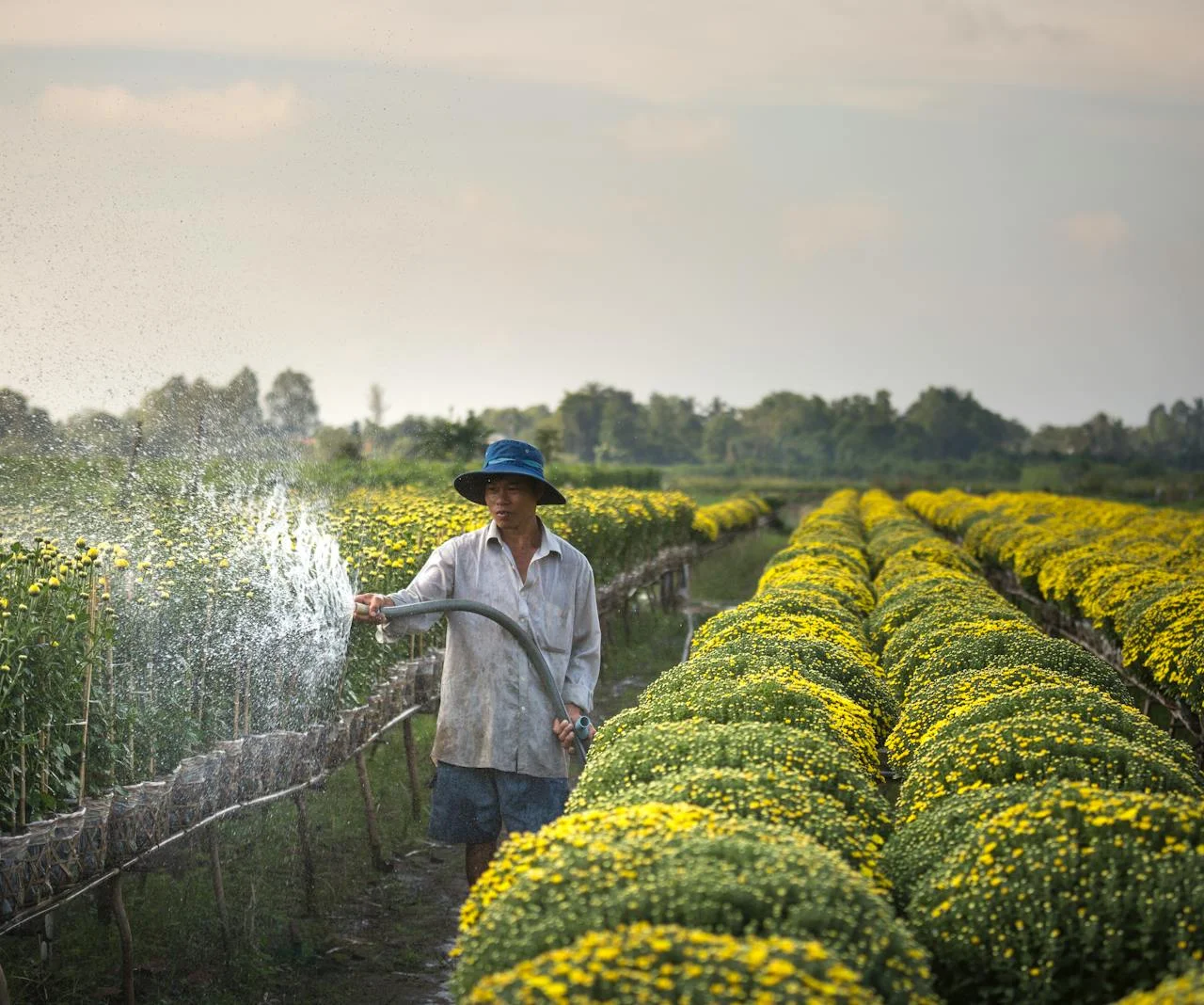
Water security isn’t solely about scarcity; excess water can be equally damaging. Through innovation and collaboration, sustainable, water-secure communities are possible. While droughts are notorious for causing major crop losses, a recent World Economic Forum (WEF) report highlights that excessive rainfall has been nearly as destructive. Between 2015 and 2021, India lost 35 million hectares of crops to drought and 33.9 million hectares to excessive rains. This illustrates that water security, often narrowly defined as water scarcity, also encompasses the challenges posed by water excess. With agriculture employing 40% of India’s population, these losses have a profound impact.
Over a decade ago, the Hindustan Unilever Foundation was established to address water challenges, particularly in regions and agricultural communities most vulnerable to water-related issues.
Promoting Water-Efficient Crops and Techniques in One-Acre Farming
In Osmanabad, Maharashtra, inconsistent rainfall, rocky terrain, and limited surface water have led to an overdependence on groundwater, primarily through bore wells. Over the past 30 years, farmers have increasingly planted water-intensive cash crops like soybean, sugarcane, and BT cotton, which are not well-suited to the region’s climate.
To address this, in partnership with Swayam Shikshan Prayog (SSP), we began working with women farmers to boost agricultural productivity and livelihoods. We introduced the one-acre farming model, encouraging women to grow crops like vegetables, millets, and pulses on small plots, using bio-inputs and water-efficient techniques such as drip irrigation. The success of this model has sparked widespread adoption, with over 35,000 women farmers expanding the practice to larger areas, conserving billions of liters of water in the process.
Community-Led Natural Water Harvesting Solutions
In the plateau regions of West Bengal, uneven terrain, heavy rainfall, and deforestation have led to soil erosion, severely affecting local tribal communities. We studied the region’s topography and, in collaboration with PRADAN (Professional Assistance for Development Action), involved the community in developing water and food security solutions tailored to local needs. Together with local civil bodies, we created natural water harvesting structures like tanks and ponds, conserving billions of liters of water in several villages. This initiative has benefitted over 25,000 farmers.
Using IoT-Based Technologies for Water-Efficient Agriculture
Punjab’s agriculture, heavily reliant on paddy and wheat, has contributed to declining groundwater levels, with 117 of the state’s 150 blocks overexploited. To address this, we partnered with the Centers for International Projects Trust (CIPT) to promote water-efficient cultivation methods. We introduced IoT-based soil moisture sensors that estimate the exact water needed, sending advisory text messages to farmers for precise irrigation. This has helped conserve both water and electricity, benefitting over 14,000 farmers in 2022-23 and creating a water potential of billions of liters.
Training Women Agri-Water Professionals for Efficient Resource Use
In Balrampur, Uttar Pradesh, agriculture is becoming increasingly unviable for small and marginal farmers due to rising input costs and poor yields. Our partner, People’s Action for National Integration (PANI), has trained an all-women cadre of agri-water professionals. These women help farmers adopt innovative practices that use resources more efficiently, improving yields and incomes. Through video sessions, field demonstrations, and access to quality seeds and market linkages, this initiative has benefitted over 71,000 farmers in the past year.
The Power of Collective Action for a Water-Secure Future
Innovative solutions and collective action can address significant environmental challenges. As World Water Week begins, the importance of water cooperation for global peace and security is more critical than ever. Water security requires not just the right quantity of water, but also the right quality, timing, and distribution.
Through the Hindustan Unilever Foundation’s efforts, we have created a cumulative water potential of over 3.2 trillion liters, enough to meet India’s drinking water needs for more than two years.




